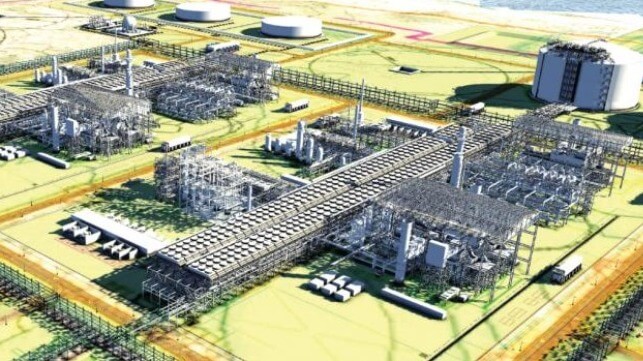Deepwater Resources Could Double Sub-Saharan Africa's Gas Output

Sub-Saharan Africa is set for a boom in natural gas production from deepwater projects, according to consultancy Rystad Energy.
Output of natural gas is set to more than double in the region by 2030, according to an analysis by Rystad, from 1.3 million boepd to 2.7 million boepd (roughly 15 billion cubic feet per day). Deepwater output will account for most of the growth and will make up about 40 percent of all production by the end of the decade. "Vast" untapped deepwater gas resources will propel continued growth through 2035, at which point total production will hit about 4.0 million boepd.
The immense potential of these resources will attract billions of dollars in private investment. By 2030, total greenfield investments in E&P will grow to nearly $40 billion annually, with more than half of the total spent on deepwater projects.
“Production in Sub-Saharan Africa is expected to increase significantly in the coming years, with natural gas output in particular set to see a boom in output. Although there have been notable onshore finds, the development of deepwater offshore resources is going to usher in a period of rapid growth for the region,” said Siva Prasad, senior upstream analyst with Rystad Energy.
Half of the region's deepwater gas potential lies off the coast of Mozambique, where the government has signed multibillion-dollar development deals with TotalEnergies and ExxonMobil. A conflict with Islamist insurgents in Mozambique's northeastern region has delayed these projects. Tanzania, just to the north of Mozambique, holds the next-largest share.
The challenges seen in Mozambique highlight a broader question for oil and gas companies in the region: deepwater projects are generally more capital-intensive, and the cost and risk may be harder to justify in a changing energy market.
"Deepwater projects in Sub-Saharan Africa are . . . risky and can be delayed or unsanctioned due to high development costs, challenges accessing financing, issues with fiscal regimes and other above-ground risks," Rystad cautioned. "With majors continuing to rein in upstream spending and plow a course on the energy transition to help lower emissions, many deepwater schemes will face challenges getting off the drawing board."
